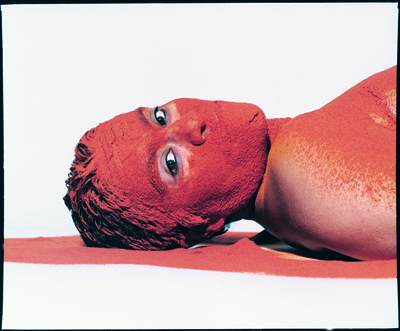Human skin, the largest organ of the body, remains both biologically and socially intriguing. Being the “face” of first impressions, it remains the canvas of opinions. The question, therefore, of why people want to change skin colour is not only biologically based, but typically associated with questions of self-image, stigmatisation and yearning for lightness which, in many societies, translates into social acceptance. Lester Davids discusses the current prevalence of illicit skin lightening formulations in our country and continent, and questions cosmetic policies and the ethics of self-modification.
Shose Kessi speaks to the findings from a Photovoice project with black students at UCT discussing their experiences of being in a predominantly white patriarchal and heteronormative space. Photographs and captions by the students will be presented to discuss how they navigate the UCT space, their coping mechanisms and strategies of resistance.
Using her own body as subject and point of departure, Berni Searle presents and discusses work from the Colour Me series (1997-98) and the Discoloured series (1999). Drawing on videos, photographs and photographic installations, the presentation explores how these bodies of work address notions of the impermanence/permanence of documentation and recording, and considers artistic interventions into historical stereotyping as well as strategies of representation employed in the work.

[Images: Shose Kessi; Berni Searle - Untitled from the Colour Me Series 1998, photo credit Jean Brundrit]
Lester Davids is Associate Professor of Cell Biology in UCT’s Department of Human Biology. He runs a scientific research lab specialising in skin cancer and wound healing. His other lab focus is the study of the global biological and psychosocial effect of skin lightener use with special interest in Africa.
Shose Kessi is a Senior Lecturer in the Department of Psychology at UCT. The focus of her research is community-based empowerment and social change, particularly exploring issues of identity, such as race, class, and gender, that impact on people’s participation in transformation efforts.
Berni Searle is Associate Professor of Videography at the Michaelis School of Fine Art, UCT. Searle works with lens-based media to stage narratives connected to history, memory and place. Often politically and socially engaged, her work also draws on emotions associated with vulnerability, loss and beauty.
The presentation, followed by an open question and answer session, will take place on Thursday 28 April from 17:30 – 19:00 in the Anatomy Lecture Theatre, Old Medical School Building, UCT Hiddingh Campus, 31 – 37 Orange Street, Cape Town. Refreshments will be served from 17:00. No booking is necessary and all are welcome.
Listen to the podcast here.
For more information, contact the ICA office: +27 21 650 7156 or sam.saevitzon@uct.ac.za.
Start: 28 Apr ’16 5:00 pm
End: 28 Apr ’16 7:00 pm
Cost: Free
Category: Featured, Medical Humanities
Organizer: ICA
Email: sam.saevitzon@uct.ac.za
Venue: Anatomy Lecture Theatre
Phone: +27 21 650 7156
Address: Google Map UCT Hiddingh Campus, 31 Orange Street, Cape Town, 8001, South Africa
